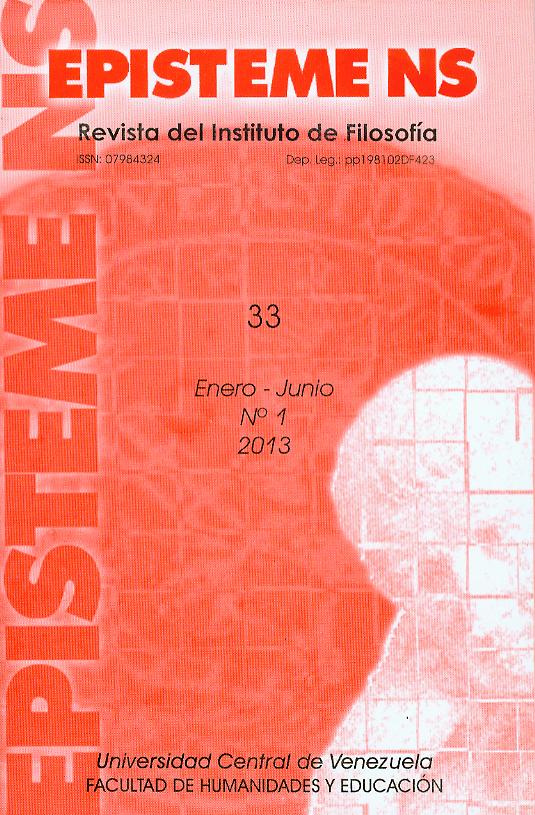Con-saber-se y co-percibir-se. Voces y construcciones lingüístico-semánticas en la génesis, articulación y tematización del problema de la conciencia en la antigüedad
Palabras clave:
Conciencia, con-saber-se, co-percibir-se, consciousness, co-knowing-oneself, co-perceiving-oneselfResumen
Si bien es cierto que el término ψυχή comenzó a ser empleadopor los antiguos griegos, especialmente a partir del siglo V a. C, para hacerreferencia y delimitar el núcleo íntimo de la realidad tanto biológica comopsicológica del individuo, no obstante, desde Homero en adelante otras vocesy construcciones lingüístico-semánticas fueron progresiva y, hasta ciertopunto, tentativamente empleadas con el propósito de tematizar y dar cuentadel problema de la conciencia. De forma tal que, determinar con total exactitud cuál habría sido el concepto de conciencia gestado en la antigüedad constituye una empresa compleja, pues pasa por reconocer de antemano que no hubo, entonces, tal cosa como un único concepto o una única voz que fuera de uso exclusivo al momento de hacer referencia a la conciencia y, menos aún, un único umbral especulativo a partir del cual ésta fuera tematizada. Admitiendo i) la dificultad intrínseca que poseen las fuentes antiguas de las cuales disponemos para emprender una reconstrucción interpretativa de la noción de conciencia y sus posibles tematizaciones así como ii) la complejidad terminológica relativa al problema que de ellas se deriva, oscilante frecuentemente entre un autor y otro o incluso entre un ámbito de conocimiento y otro, por ejemplo, el poético, filosófico o médico, en el presente trabajo ofrecemos una aproximación al problema de la conciencia en la antigüedad, tomando en consideración las construcciones lingüístico-semánticas, que, tras poner de relieve la reflexividad como capacidad inherente al sujeto cognoscente, dan mejor cuenta de cómo la voz conciencia se gesta y articula a partir del con-saber-se para sí en diálogo con otros3, o alternativamente, a partir del co-percibir-se siendo un algo otro dispuesto en relación con aquello que es percibido.
Abstract: Although is true that the word ψυχή was employed by ancient Greeks, especially from the fifth century onwards, in order to indicate and delimit the innermost core of one’s own identity, however, it is also true that beginning at Homer there was alternative vocables as well as linguistic-semantic expressions that were progressively and even tentatively employed in order to bring tolight what consciousness might be. A labour extremely complicated is trying tofind out what kind of concept of consciousness might have been visualized byancient Greeks, because it passes through the acknowledment that the Greeksneither did have, indeed, a unique voice or expression which might have beenused exclusively to make reference to consciousness nor a unique speculativestandpoint, for example, poetic, philosophical or even medical, which mighthave been claimed its genuine thematization. Accepting i) the inherent difficultythat posses ancient sources which we have at hand to undertake an interpretative reconstruction of the concept of consciousness and also what might have been its possible thematizations, and ii) the intricacies of the terminology that relate to such a notion, oscillating, in fact, between one author and another one, or even between dominions of knowledge, the present paper offers an approximation to the problem of consciousness in antiquity taking into account those linguistic-semantic expressions that, after highlighting reflexivity as a capacity inherent to the cognoscent subject, give a better account on how does the notion of consciousness sprang and might have been defined either as a result of a type of co-knowing-oneself put into dialogue with the others, or as a kind of coperceiving-oneself in terms of recognizing oneself different from that another thingwhich simultaneously is being perceived.

